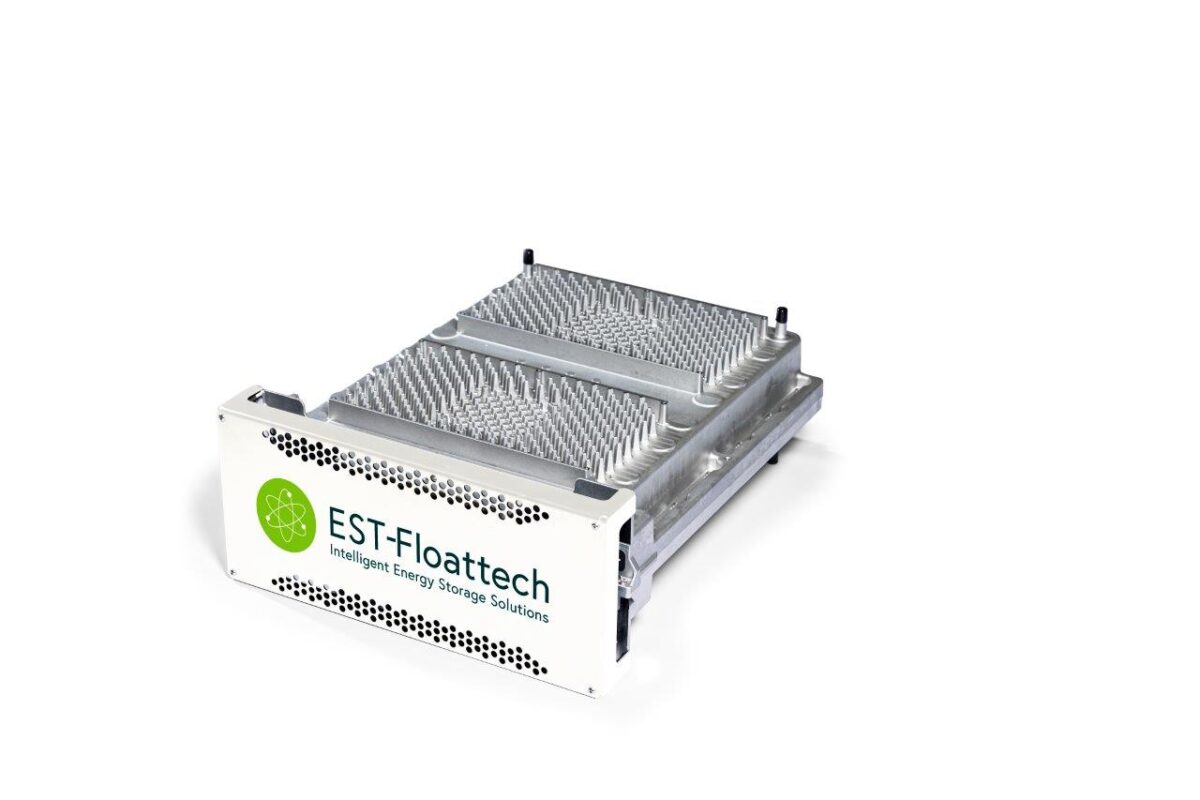EST-Floattech has unveiled a new nickel-manganese-cobalt (NMC) battery storage system for maritime applications.
“The new system is suitable for virtually any on-board purpose; from propulsion (full-electric, hydrogen-electric, diesel-electric, etc.) to peak shaving, auxiliary power, and more,” a company spokesperson told pv magazine. “The scope of this battery system extends to all maritime (niche) markets, e.g. ferries, aquaculture power supply, container ships, inland shipping tankers, motor and sailing yachts, workboats, crew suppliers, offshore wind support vessels, naval vessels, dredgers and many more.”
The Dutch maritime energy storage specialist said that the Octopus line includes its battery management system, which can be integrated with a range of battery configurations and chemistries. The company currently offers two versions of its NMC battery modules – the High Energy and the High Power variants. The former has a nominal voltage of 52 V and a capacity of 192 Ah. A single battery module has a capacity of 10 kWh and measures 709 mm x 582 mm x 248 mm, with a weight of 86.5 kg.
“The High Energy batteries are designed for long-duration and large-scale battery installations, making them ideal for medium- and large-sized ships that sail electrically and charge during the night, for example,” said EST-Floattech.
The High Power batteries have short charge and discharge times and can be used in fast-charging ferries that make short trips. They have a nominal voltage of 52 V and a capacity of 112 Ah. A single battery module has a capacity of 5.8 kWh, measures 709 mm x 582 mm x 248 mm, and weighs 82 kg.
Up to nine battery modules can be stacked together. A High Energy system with three strings connected in parallel and 12 modules per string reaches a capacity of 360 kWh, while a High Power system has a capacity of 208.8 kWh.
In addition to a fixed configuration, the Octopus Series is available as a 10- or 20-foot containerized solution that can be placed on different types of vessels.
The battery modules are IP65 rated and have DNV type certification. EST-Floattech claims they have more than 10 years of life. The company is also developing technology with lithium iron phosphate (LFP) battery chemistry.
“The market is growing, to improve sustainability and due to goals set by regulations,” said Walter van der Pennen, CCO of EST-Floattech. “The energy transition in the maritime market has really started, and in the past few years there has been an increase in electrically powered vessels. As a result, you see more and more differentiation in the applications needed by shipowners and shipbuilders, not only for direct propulsion but also for various equipment, machinery, peak performance and hotel loads.”
The system was fully developed in Badhoevedorp, Netherlands.
This content is protected by copyright and may not be reused. If you want to cooperate with us and would like to reuse some of our content, please contact: editors@pv-magazine.com.



3 comments
By submitting this form you agree to pv magazine using your data for the purposes of publishing your comment.
Your personal data will only be disclosed or otherwise transmitted to third parties for the purposes of spam filtering or if this is necessary for technical maintenance of the website. Any other transfer to third parties will not take place unless this is justified on the basis of applicable data protection regulations or if pv magazine is legally obliged to do so.
You may revoke this consent at any time with effect for the future, in which case your personal data will be deleted immediately. Otherwise, your data will be deleted if pv magazine has processed your request or the purpose of data storage is fulfilled.
Further information on data privacy can be found in our Data Protection Policy.